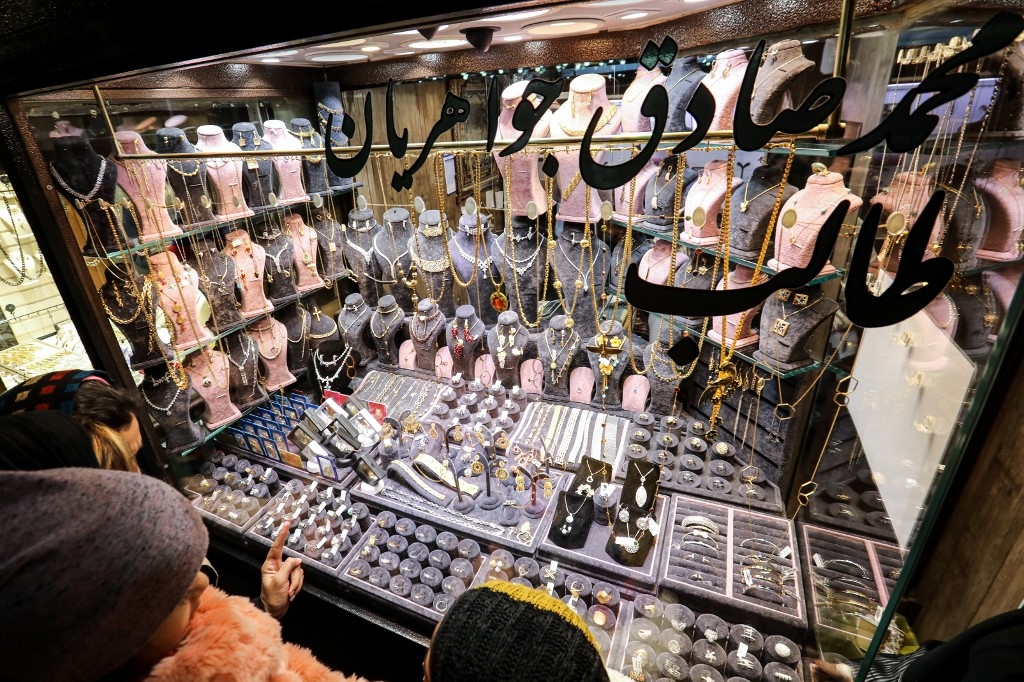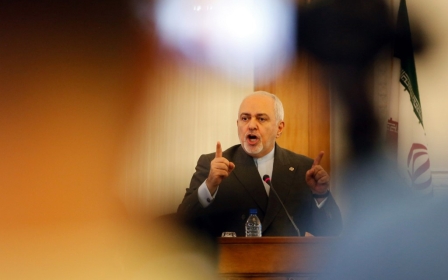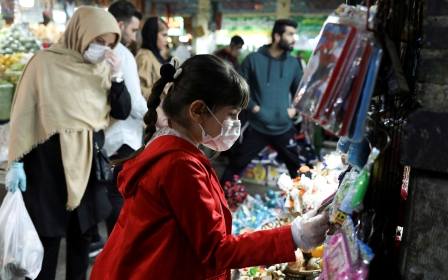Iranian press review: Iranians rush to sell jewellery as lockdown relaxed

Reopening of shops sparks jewellery sell-off
Iranians from all walks of life have rushed to sell their personal jewellery and gold coins following the reopening of "low-risk" trades in the country, Tasnim news agency has reported.
On 18 March, jewellery shops in Iran were reopened after 50 days of closure, which was enforced by authorities as a part of measures to contain the spread of coronavirus.
Iran has the highest number of Covid-19 cases in the Middle East, with over 6,000 deaths reported so far.
According to the deputy chairman of Tehran’s gold merchants syndicate, Mohammad Kashtiaray, after the 50-day shutdown jewellery shops do not have enough cash to buy everything people want to sell.
“The sellers are both poor and rich,” Kashtiaray told the news agency. “The poor sell their gold to cash some money for their basic needs, and the rich need the money to pay back their debts and cover the cheques [they had already written].”
Buying jewellery and gold coins is a traditional way of saving money in Iran, particulary after the devastating international sanctions that have resulted in a sharp devaluation of the Iranian currency.
Methanol poisoning on the rise
The number of people killed by methanol poisoning in Iran is still on the rise, according to the Arman daily.
After coronavirus, alcohol poisoning is currently the second-leading cause of death in the country, according to the paper.
The daily reported that since the beginning of the coronavirus outbreak in Iran, 5,011 people had been hospitalised due to alcohol poisoning - 525 of whom died, 95 of whom had a partial or complete loss of eyesight and 405 of whom needed hemodialysis (a treatment to filter waste from the blood due to kidney malfunction) to survive.
Despite a campaign by authorities against false medical information circulating on social media - which has been advising people to gargle or drink methanol alcohol, or use its hot-vapours, to contain the coronavirus - the number of victims of methanol poisoning has been rising steadily in the country.
According to Arman, the victims also included those who had mixed ethanol with water and fruit juice as an alcoholic beverage.
Since the 1979 revolution, which was followed by a total ban on the production, trade and consumption of alcohol in Iran, ethanol has been widely used in the country as a bootleg replacement.
The daily said that in recent months some producers had used bleach to whiten methanol and sell it instead of ethanol to shops and pharmacies.
Outcry over jail sentence
A prison sentence for veteran Iranian journalist Kayvan Samimi has sparked outrage among Iranian activists and international press freedom watchdogs.
A five-year sentence was handed to Samimi in absentia after the Iranian judiciary convicted him of participating in last year’s International Workers’ Day demonstration in Tehran, opposing obligatory headscarves for women and meeting with family members of political prisoners.
'We are appalled by this court decision sentencing a well-respected colleague to jail'
- Anthony Bellanger, International Federation of Journalists
The International Federation of Journalists (IFJ) has condemned the court order.
IFJ General Secretary Anthony Bellanger said: "We are appalled by this court decision sentencing a well-respected colleague to jail because he marched for workers’ rights among other allegations.”
Over the past five decades, Samimi, the editor in chief of Iran-e Farda monthly, has served several prison sentences because of his journalism and political activism. The latest had been a six-year sentence he served after the 2009 controversial presidential elections in Iran.
During the time of the shah, the last king of Iran, he was arrested three times and served five years in prison. In 1976, following his last arrest by the shah’s secret police Savak, he was sentenced to life in prison and kept in the notorious Qasr jail until the 1979 revolution.
Samimi is an outspoken critic of Donald Trump, US interventionist policies and the Israeli occupation of Palestine. His two brothers were also leftist political activists who were executed - one by the shah and the other after the revolution.
'Keep your distance but don’t break my heart'
The way rich people have treated the poor during the coronavirus pandemic lockdown has caused anger among Iranians.
The Iran daily, in a feature story under the headline “Keep your distance, but don’t break my heart”, told the story of workers at grocery delivery services, street sweepers and motorcycle couriers during the days of nationwide lockdown in Iran.
“I was standing two metres away from the apartment’s door, but the lady who had ordered the groceries by phone kept yelling at me ‘stay farther’,” Farhad, who works as a delivery person in a supermarket in Tehran, told the daily.
“When she wanted to pay the bill, she crumpled the banknotes and tossed them at me.”
Janali, a street sweeper, also told the daily that since the beginning of the outbreak of the virus, people have been afraid of him and his colleagues and had changed their attitudes towards them.
“They think we are not clean because we are dealing with their trash,” he told the daily. “However, it is the opposite. Because of our job we need to follow very strict hygiene standards.”
* Iranian press review is a digest of reports that are not independently verified as accurate by Middle East Eye
Middle East Eye propose une couverture et une analyse indépendantes et incomparables du Moyen-Orient, de l’Afrique du Nord et d’autres régions du monde. Pour en savoir plus sur la reprise de ce contenu et les frais qui s’appliquent, veuillez remplir ce formulaire [en anglais]. Pour en savoir plus sur MEE, cliquez ici [en anglais].





